Our Travel blog
|
At the beginning of the last blog entry I described, in a somewhat flamboyant way, a sunny day at the castle. True to form it has since rained almost continuously. Mull enjoys, and I realise that’s a debatable term, around 4500 mm (177 inches) of rain a year. In an average year it rains somewhere on Mull for 283 days. That’s…well it’s a lot of rain. It is windy too, which combines to create horizontal precipitation of a curiously penetrative nature. Mull does though have one trick up its geographical sleeve though. Due to the mountainous nature of its centre the weather can be very local. It’s not unknown for us to leave home in fine weather and arrive 10 minutes later at work in driving rain. While we’ve battened down the hatches our neighbours back in Lochdon are slathering on the sun-cream and wondering if 10 am is too early for a G&T. We don’t let the weather spoil it though. Thanks to the Gulf Stream the climate is mild and on a day off we can usually head for a part of the island that isn’t half submerged. On one such jaunt we took ourselves to the north of Mull to walk up to Crater Loch; which, as you’ve probably guessed is a loch in the crater of a long extinct volcano. It’s about 60 million years since its last eruption so we felt reasonably safe. We were able to walk around the rim and enjoy spectacular views across the northern end of the island while speculating on the possibilities of the cone being hollowed out as the lair of a supervillain. My instinct is to now write a background about the conditions that created it but geology has its own language in which words like denudation and diagenesis feature heavily. I’m working my way through the book Mull in the Making by Rosalind Jones at the moment. According to Rosalind’s introduction it’s intended for ‘the layman and interested amateur geologist’. I think that was the last sentence that I fully understood. In contrast many of the walking guides to Mull are delightfully vague, written by enthusiastic amateurs where precision and detail take a back seat to flowery descriptions and the assumption that you instinctively understand, for example, how far to walk uphill before the gate on the left that you have to pass through to avoid becoming sport for the bull or a red splash on the beach after a lively tussle with gravity. The route to and from the Loch was simple enough though even if our guide book suggested we start from a place that doesn’t exist. On our return journey we passed a family group cycling their merry way along the narrow undulating road. We see a lot of cyclists here on Mull enjoying the fresh air and healthy exercise. Actually I very much suspect none of them are enjoying themselves if only they’d admit it. They are inevitably led by a father who last mounted a bicycle when he was 15 years and 5 stone younger. The kids just wanted to go to Centre-Parcs and think cycling is boring, Mull is boring, mum and dad are boring and if dad points out one more fucking eagle they’ll insert it where its beak will make that saddle he keeps moaning about a lot less comfortable and mum is wondering why she’s ended up carrying three rucksacks and how she let herself be talked into this when Portugal was cheaper, hotter, flatter and had inexpensive wine on tap. Older children and family holidays don’t always mix but we were fortunate though to have my two adult children visit for a couple of days. We picked them up in Glasgow after we’d been ‘south’ for a wedding and to see Alison’s parents. Her son turned up to surprise her which just made a perfect reunion even better. The wedding went well, we had glorious sunshine which meant we were the only couple to turn up carrying rucksacks full of coats, waterproof trousers and sweaters, and the reception was a fabulous affair in stunning surroundings. After falling for the local trick of sitting on the portion of the train that doesn’t leave the station we met my two half an hour after the designated time and proceeded to fling them around every tight bend on the road to Oban. The ferry headed into a glorious golden sunset as we sailed over to Mull, with plumes of cotton-wool cloud rising like smoke from the peaks. Back on the island we introduced them to some of the delights that Mull has to offer, including the castle, Tobermory, a drive around stunning Loch na Keal, Whitetail Gin and 17 different types of rain. We took them on a walk to the abandoned settlement of Shiaba in the sunshine and had an encounter with a hissing adder which we narrowly avoided stepping on. Their visit culminated with a home cooked veggie chilli in Mavis and, possibly her personal highlight, Alison winning at cards. It was a brief interlude, just 5 days and 1000 miles before we were back at work and my two boarded the ferry to make their way home by boat, train and plane. However old they are, however grown up, children are our most precious gift; brief lives in the cycle of the universe that we nurture and give to the world where we hope they’ll make a difference, live contented lives and leave the earth a tiny bit better off than when they arrived. All in a world where we face political uncertainty and the spectre of terrorism and war hovers. Whatever the cost in life in 2017, where a pop concert can be considered a legitimate target, where the bongs of a big clock are more newsworthy than ongoing atrocities in Syria and Palestine (to name just 2 examples) nothing these days can compare to the slaughter of WW2. Compared to the 1940’s we must remember that our children here in the West are still comparatively safe. In the Spring of 1944 port cities in the South of France came under heavy bombardment from Allied Forces in preparation for the planned invasion of Southern France. Marseilles, Lyon, Grenoble and Lyon were all hit hard and on 11th March 1944 B-52 Liberator bombers and B-17 Flying Fortresses of the US 15th Airforce attacked Toulon. A bomb passed through the top deck of U-410, a German V11C submarine under repair in Missiessy dry dock. The ensuing fire led to the entire dock being flooded and the submarine put out of action. It was eventually captured by Free French forces. No personnel were aboard at the time and all 53 crew members survived. Before putting into dock for repairs U-410 had been in action in the Mediterranean where, on the 18th February she fired 2 torpedoes 16 minutes apart, hitting and sinking HMS Penelope. Only 206 of the 415 crew survived. Capt. G.D. Belben, DSO, DSC, AM, RN went down with The Penelope, as did Able Seaman Walter Henry Canham. At just 20 years old Walter was my father’s elder brother, one of 3 boys and 2 girls that Walter (Snr) and Florence Canham raised in Tottenham amongst streets with names familiar to me from tales passed down by family. HMS Penelope was in many ways a remarkable ship, or at least it was remarkable that she survived as long as she did. An Arethusa class light cruiser she took part in many successful operations during WW2, although judging by the amount of damage she sustained one is tempted to conclude that her main function was to draw enemy fire. Of course in war one expects to come under attack but the Penelope seemed unusually attractive to enemy ordinance. For example during sustained air attacks by The Luftwaffe in March 1942 she was holed both forward and aft by near-misses. Once in dock in Malta the attacks didn’t cease, to the point where there was so much shrapnel damage she gained the nickname HMS Pepperpot. The crew gallantly plugged these with long wooden pegs so that she could sail to safer harbour in Gibraltar earning her the temporary nickname ‘HMS Porcupine’ for a while. HMS Penelope had been involved in, and inevitably damaged at, the second battle of Sirte, an engagement with the Italian Navy off The Gulf of Sirte in NW Libya. The author of the Horatio Hornblower series of books, C. S. Forester dedicated his 1943 book The Ship, "with the deepest respect to the officers and crew of HMS Penelope". Although it is a work of fiction set on a light cruiser the plot roughly follows events of the Second Battle of Sirte. Forester was aboard The Penelope at the time of the engagement at the invitation of the Royal Navy command; The Ship may have been written expressly for the Navy as propaganda but it is also a superb evocation of the community of men that made up a WW2 Warship.[1]
Walter was completely unknown to me; a name mentioned with reverence on occasions at family functions and as a name on The Kings Scroll that hung on the wall of my Grandmothers flat, declaring deepest regrets at his passing and signed on behalf of the King. Its peculiar to reflect now that so many lives were sacrificed, so many lost fighting against the axis powers, the fascist states that would willingly commit genocide for no other reason than their own economic success, where to be ‘different’, to think for yourself, to belong to a religion or race that the state disapproved of, to have a disability or to be bold enough to defend those who did meant death. Walter was just one person out of 60 million[2] who were victims of WW2 in one way or another. One precious life, nurtured, worried over, the cause of laughter and tears, playing with his younger brothers and sisters, going off to school full of hopes and dreams, only to be lost at sea, barely an adult, sacrificed in his prime. As were most of the young men he faced in battle, many of whom were recruits and not necessarily sympathetic to the Nazi cause. The captain of U-410 was just 25 years old. That’s war; indiscriminate culling of a generation on behalf of politicians, warped ideologies and rampant nationalism…And yes, sometimes we have to fight back to resist those who would do us or their own people harm. That’s why I believe we must resist fascists wherever we see them. Better a scuffle over a statue in Charlottesville now than bullets and bombs later. Better to call out and resist the extreme right wing trying to stand for Parliament, the very hub of our democracy, than risk them gaining a stronghold. Far preferable to stand up for women’s rights, Pride and religious tolerance than let repressive cultures gain a stronghold. Hitler didn’t rise to power on a manifesto of torture and inhumanity. The conditions were created for later atrocities by gradually eroding liberties, by dehumanising and scapegoating people, by blaming sections of society for all the ills of the state and controlling popular opinion through the press. Resisting totalitarian power may just prevent more of those scrolls on the wall of widows, mothers and siblings that cast a shadow that no amount of sunlight can remove. [1] So I’m told; I’ve yet to read it but its next on my list. [2] https://en.wikipedia.org/wiki/World_War_II_casualties
0 Comments
I’m writing my notes for this blog entry on a sunny day at work. The rush for entry to the castle has died down to be replaced by the ambient noise of people enjoying the rare sunshine. The air is still, hazy with the sweet smell of freshly mown grass and the slight tang of the sea. Somewhere over the hill the mower is purring, the shouts and cries of children pierce the background hum of voices and bird song. Families bicker and laugh, a lad playing football with his friends provides a running commentary on his own prowess, a toddler crunches on the gravel and picks up a handful to fling just for the delight of the texture; bored teenagers trail along behind their parents, like moping tails embarrassed to be seen in the company of the comet they can’t quite escape. Walkers stomp around in expensive boots and trousers, discarded layers of clothing flapping off backpacks like ragged flags. Parents approach the castle and cajole reluctant children with improbable bribes. “Let’s look in the castle and find the knights in shining armour….”[1] A young couple lean into each other awkwardly, clinging on with grim determination they sit together on the grass and tear at a shrink-wrapped picnic. They both duck as a swallow swops over them, laughing together as they re-assemble their al-fresco lunch, perhaps their first as a couple. Away in the carpark a dog bounds free of the car, excited children tumble out as their parents unfold from the front. Hands on hips he arcs his back, stretching out then straightens with an approving nod as he takes in the views. The isle of Lismore a green hump in the vivid blue sea, behind it distant mountains, blue and hazy topped with fluffy white clouds like piped meringue. Two pensioners ignore the view, pass the young couple and smile, maybe remembering when they were two young lovers having their first picnic. A rare interlude in busy lives, rations saved for a couple of precious eggs served hard boiled and wrapped in tissue, a corn beef sandwich each, and a flask of tea, hot, sweet and invigorating. Distant memories fading in the sun as they wind a weary path up to the castle. From my vantage point a heat haze shimmers above the bay. The tide is out exposing sands strewn with boulders wearing kelp crowns. A lone buzzard hovers above the shoreline, riding the gentle breeze. A party of German cyclists amble up, walking gracelessly across the gravel. We exchange pleasantries in formal broken English. “Thank you sir. Have a very nice day sir.” says their leader as I hand him the ticket. The day flows on with its own rhythm, the early rush, families awake since first light trying to occupy restless children, then waves of visitors as the ferry’s come and go, waiting to spot the bus carrying a tour party, the lunch time lull, the afternoon walkers and the post Iona trip hustle as people try and squeeze one last attraction in before they dash off to catch the ferry. As the families settle into lethargy brought on by lunch and sunshine it is time for my afternoon stint inside the castle talking to visitors, acting as a guide and point of contact. As my replacement comes down the castle steps I rise from my raised seat, freeze in mid crouch and slowly topple sideways towards the till, steadying myself by flinging my arm out to brace against the wall of the hut. Ninety minutes of sitting on a high stool and my right leg has taken the unilateral decision to go to sleep without any prior notice or permission from the rest of me. This is a problem I usually only experience at night. Climbing up our ladder to bed is a wonderful feeling. I know that within minutes I’ll be startling myself back into consciousness by dropping my book, at which point I’ll exchange a goodnight kiss with Alison, turn onto my side, snuggle down, close my eyes, get up to have a wee, bump into the table, repeat the whole exercise and then discover that in spite of 54 years of close acquaintance with my arms they suddenly get in the way. Whichever way I lay I seem to have a spare limb and can find no way to lay without it causing me grief. Surely after a few million years of evolution we’d have developed a way to fall asleep without ones left arm turning into a nocturnal speed bump? Worse still is the experience of waking to find a completely useless appendage beside you because it’s numb from pins and needles[2]. I’ve had to lift one arm with the other just to move it out of the way. Occasionally I’ll turn over and a whole arm that is only notionally attached to my body will thrash across Alison without any conscious effort on my part. By careful honing of my husbandry instincts I usually manage to convey the impression of a loving hug, although she’s less enamoured when my supposed tender embrace bounces off of her nose. But it’s not all work or night time paraesthesia[3]. On a recent day off we took the car on a rare jaunt into mainland Scotland to meet up with friends. We rendezvoused at Callander, a small homely looking town on the river Teith that is used as the fictional Tannochbrae in the Dr Finlay’s Casebook TV series. The town sits beneath steep cliffs with trees clinging on to seemingly impossible slopes. The cliffs mark the Highland Boundary Fault, through which Bracklin Falls tumble and where we would soon alight for a pleasant stroll with our friends. [1] Of which the castle has precisely none. Anything heavier than an armoured mouse would sink up here. [2] Alison says she’s used to waking next to a useless appendage; she had a curious grin on her face at the time. [3] The medical term for abnormal sensations such as pins and needles – if you’ve learned nothing else from this blog at least you have that. You can thank me later. First though was a stop at one of the friendliest cafes we’ve visited. Access was through a clothing store and upstairs to a light and airy seating area. Walking up the stairs I was slightly tense from holding back my natural inclination to bolt up steps 2 at a time. I don’t know where this stems from but faced with any stairway I will habitually zip up them. I’m conscious of it because I’ve often turned to talk to Alison at the top of a flight of stairs and found myself alone and slightly out of breath. Alison meanwhile will be walking up like any other sane person with that look of quiet bewilderment she reserves for my eccentricities. Back when I had a proper job where words like collaborative and synergy featured without irony I was suited and booted at a meeting in swanky offices overlooking the British Library in London. After making awkward small talk with the people I was there to meet we headed for the stairs where I leap off with my usual gay abandon like a puppy off the leash, only to find myself alone on the 3rd floor. 10 minutes later I found them again looking baffled and slightly worried by my sudden departure. Evidently they had all used the elevator next to the stairs then spent the rest of the time wondering if I was okay. I had the distinct feeling that their reception was lukewarm when I eventually found them, especially from the chap dispatched to find me, who I recall took the lift back down. Anyway the reason for climbing the stairs in Callander was that the café was dog friendly, ideal since our friends had their dog Dougal with them. Not only was he made welcome with a dog bed and choice of water bowls (he tried all three) but a waiter directed us towards a tin of dog treats. Which, upon reflection I now feel slightly cheated by; why, I now wonder, was I not directed towards a tin of cakes and a comfy chaise longue rather than a menu and one of those chairs that is just about comfortable for 20 minutes until your bottom starts going numb? Which is a trivial observation as the food was very good, the service attentive but not over the top and the company delightful. With all their charm and character our friends are also readers of this blog (hello J) and deserve special praise as they have, perhaps unwittingly, influenced it more than they probably realise, all stemming from a fireside conversation in Edinburgh a few years ago. Today we picked up the easy flow of conversation from that meeting and spent a leisurely lunch exchanging news and gossip. After a nice ramble to Bracklin Falls we popped in to see Doune Castle. The castle features in one of the most notable moments in world history, the filming of Monty Python and the Holy Grail. I found the Monty Python TV series rather hit and miss but MPATHG was in an entirely different league. It was of course silly but for all its irreverence it presented medieval history in a more realistic way than sanitised Hollywood nonsense where the actors are surprisingly well groomed and the damsel in distress has still found time for a hair-do and managed to slap half the Avon catalogue onto her perfectly lit face. I’ll save further analysis because after all it was just a daft film, but I loved it and took great delight looking at the places around Doune Castle where various scenes were filmed. We didn’t go inside so I missed where sir Galahad was rescued from administering spankings to the bathing maidens, a scene that I paid particular attention to as a teenager. We did however see where the French guard utter the immortal “I fart in your general direction! Your mother was a hamster, and your father smelt of elderberries!” lines so I went away happy. After Doune we called into an antique centre where a café awaited our patronage, but not until we’d wandered around the stalls. I tend to stay clear of these places nowadays since I’ve noticed an increasing amount of the items for sale I not only remember but in some cases still use. I have underwear older than some of the ‘antiques’ on sale. Today though melancholy thoughts were impossible as our little party sat down to tea and cake outside in the sunshine and drizzle in true stoic Scots fashion, following which we went our separate ways. It was all too brief, and lovely though they were Callander, Bracklin and Doune were just pleasant backdrops for a day spent in first-rate company. Our day out also served to remind us of one of the drawbacks to our lifestyle. Making new friends and acquaintances is one thing, Alison is very good at it and I’m quite adept at trailing along in her wake, like a little rubber boat bouncing and bobbing behind an elegant schooner. But however many new relationships we make nothing can replace the depth that comes with long standing friendships; bonds that have weathered the years, ridden the storms and withstood the buffeting of life’s twists and turns; friends who will be there beside us when we need them, just because we need them. It’s those people we parted from who we now have occasion to miss. Of course technology makes the world smaller nowadays. Chats nowadays can happen on a phone instantly when once they required a trudge to a distant phonebox, a stack of coins and a willingness to shut yourself in a booth smelling of stale tobacco and urine. Well, at least that was my experience of trying to keep in touch with friends while I drifted aimlessly around north London in an attempt to escape the damp room that I shared. I don’t have any friends from school whereas Alison seems to be friends with most of her class mates from her mother’s pre-natal maternity classes onwards. But that’s fine, we are wired differently and have different needs; that’s one of the reasons we are together. On Mull, we’ve found a network of people, colleagues, friends of colleagues, neighbours etc. who are warm, supportive and have welcomed us to this island and its community.
One of the lovely aspects of living here is people’s eagerness to help. On a Facebook page dedicated to all things Mull locals regularly post requests for help, often answered within minutes. Requests for picking up parcels from Oban are a regular; people popping over on the ferry will cheerfully collect packages, even prescriptions, for strangers. I’ve seen requests for the ‘loan’ of some medication until the recipients supply comes in, odd jobs needed, lifts and rooms for the night and the charmingly obscure. “Does anyone happen to have a spare ¾” gear cog for a Tohatsu 50HP outboard motor knocking about, I can pay you in duck eggs or I’ve a wicker hamper and a tub of Vaseline I no longer need?” It’s all refreshingly old fashioned and trusting in a really positive way. Unlike some places that revel in their ‘Merry Olde England’ ways[1] it isn’t quaint or populated by people who think the world should have stopped around 1956 in some mythical golden age. Mull’s character is stolid and realistic. People rely on each other and share a mutual trust that comes from all being in the same position. One day it could well be you needing a prescription picked up by another islander so it pays to invest in a little neighbourliness. [1] Isle of White, I’m looking at you… 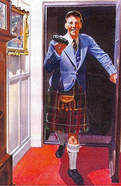 There are a lot of spoof Ladybird books around. I thought I would attempt to convey the experience of providing customer service in a similar vein. I’ve tried to break them into paragraphs as per the original Ladybird books, a technique that I can’t help but notice has influenced my writing style to this day. Please note that for legal reasons these are generic experiences and not necessarily associated with any castles of our recent acquaintance. Here is Peter. Peter is your first customer. He would like to buy a single ticket. Peter has 7 Euros, 76 pence in loose change, a Polo mint wrapped in tissue and a £50 note in his wallet. Peter buys a ticket and now has 7 Euros, £44.26 and a Polo mint wrapped in tissue in his wallet. Here is Peter again. Peter now wants to swap his ticket for a concession as he has just remembered he is 67 years old. Peter now has 7 Euros, £44.96 and a Polo mint wrapped in tissue, and a large bruise. Here is Jane. Jane was behind Peter in the queue. For a very long time. Jane is cross. Jane buys a ticket with a £20 note. Jane now has lots of little coins in her purse. Jane jingles like an angry fairy as she stomps up the steps. Here are Bob and Marjorie. Bob and Marjorie are on holiday with their son Tom. Tom is 22 and works in Asda. Tom has a beard you could hide an otter in. Bob asks for 2 adult tickets and I child’s ticket. Bob chuckles at his little joke. Bob is the only one laughing. Here are Joan and Barry. Joan and Barry are members of National Trust, English Heritage, Historic Scotland, The Caravan Club and UKIP. Barry says a very naughty word when you tell him that none of these will grant them free entry. Poor Joan and Barry Here comes Doris. Doris is 81 years old. You know this because she has told you three times already. Doris is eating a Polo mint she found wrapped in tissue. Doris is 81 years old. Here is Hans. You offer Hans a German translation. Hans is from Switzerland, not Germany. He has just informed you of this in a most efficient manner. Han’s moustache is bristling. Someone won’t be getting a cuckoo clock for Christmas. Here is Gary and his wife ‘the wife’. Gary is from Newcastle. Gary is wondering why you asked him if he required a leaflet in a different language. Gary and ‘the wife’ spend 12 ½ minutes in the castle then ask for directions to the tearoom. Here is Doris again. She is still 81. Cliff and Tammy are here. Cliff and Tammy are from America. America is a big country far away. Cliff and Tammy love Scotland. They show this by wearing tartan hats that no Scotsman would ever wear. Tammy thinks Outlander is a documentary. Cliff is drooling over the guns on display. Cliff and Tammy are very happy. The Frasier family have brought Spot the dog on holiday with them. Lucky Spot. Spot was sick in the car. Daddy is very cross. See his red face. Mummy is washing sick out of Daisy’s hair. Clever mummy. Here is Eric. Eric tells you he has taken a picture of a white tailed eagle. Eric is very pleased with himself as he shows you a picture of a crow. Today it is raining. Toms face appears at the ticket booth window. Tom says “Och aye the noo…It’s a bonny day, nice weather for the wee ducks eh pal?” Tom is from Romford. Tom has stepped in something sticky. Oops, naughty Spot. Michael and Jenny get off a big coach with 41 of their friends. They are all from Australia. Except Michael and Jenny who are from New Zealand. They are very clear about this. They are all on holiday together. Lucky people. They have been to 14 castles, 23 tea shops, 17 museums, 6 distilleries and Iona. Michael and Jenny couldn’t give a Four X about yet another castle. Michael and Jenny’s bus driver is called Donald. Donald thinks he is Jackie Stewart. See the sheep bounce. Look out for that deer Donald! Jenny has never seen the insides of a deer before. See Jenny turn green. Listen, here come Nigel and Susan. Nigel is driving an Audi. See him park. How lucky that no one else wanted to use those disabled parking bays. Can you tell the time? The time here is 5pm. Everyone is getting ready to go home for supper. Nigel and Susan didn’t see the sign saying you close at 5pm. Nigel and Susan didn’t see the rope they climbed over and they also missed the closed doors and empty ticket hut. Silly Nigel and Susan. Nigel and Susan want to know where the nearest Waitrose is and where they can get a decent organic eggs benedict before the 8.30am ferry. Silly Nigel and Susan have forgotten that they aren’t in Brighton anymore. Sylvie and Jean-Pierre are from France. Sylvie and Jean-Pierre are camping. They are carrying all their possessions on their backs. Jean-Pierre packed 5 socks and a spare pair of underpants for their 2 week holiday. Lucky Sylvie. The ferry leaves in 5 minutes. Have you tried running with all your possessions on your back? Sylvie and Jean-Pierre have. Run Sylvie and Jean-Pierre, run! |
IntroductionThank you for stopping by and reading our blog. If you don’t know who we are, what we are doing and you're wondering what this is all about you can read up on our project here. Archives
November 2017
Categories |

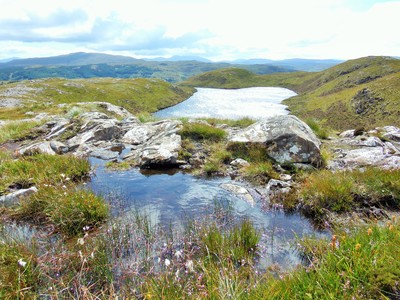
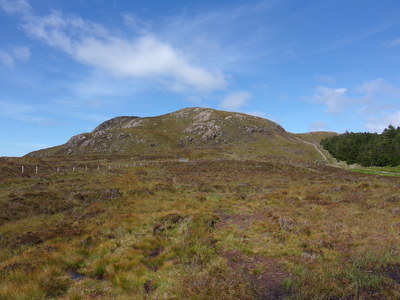
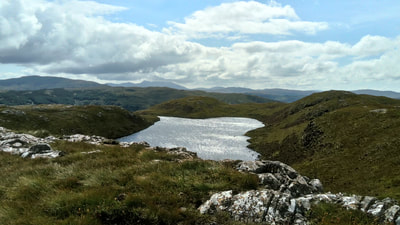
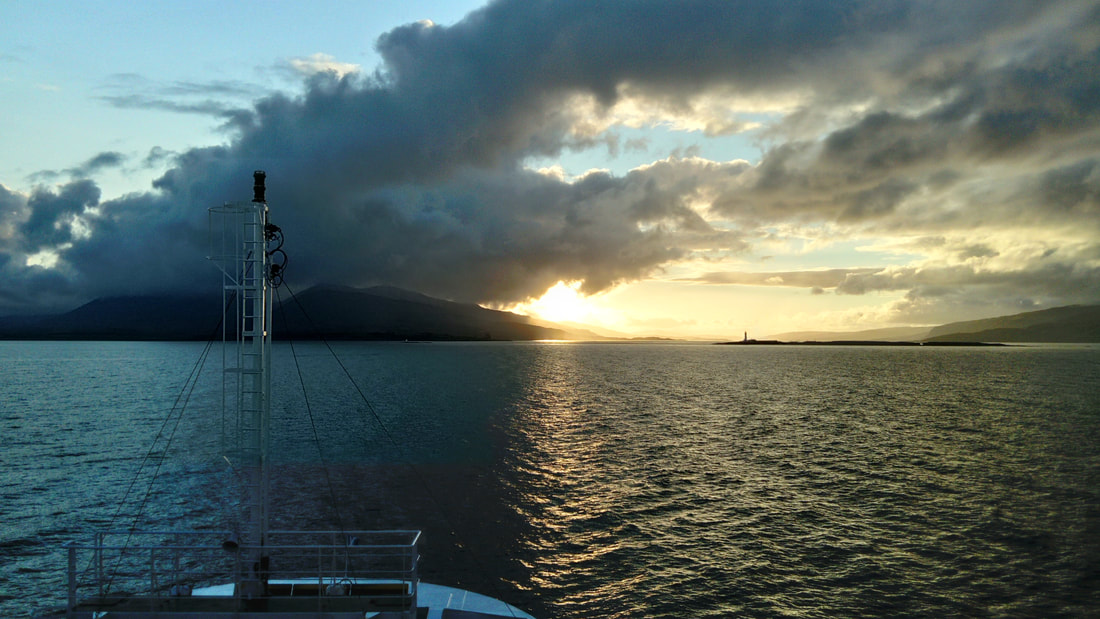
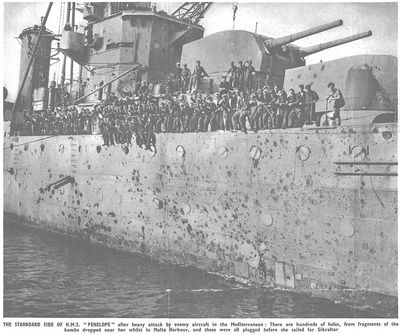
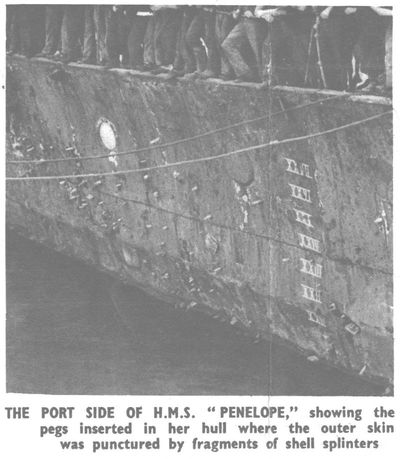
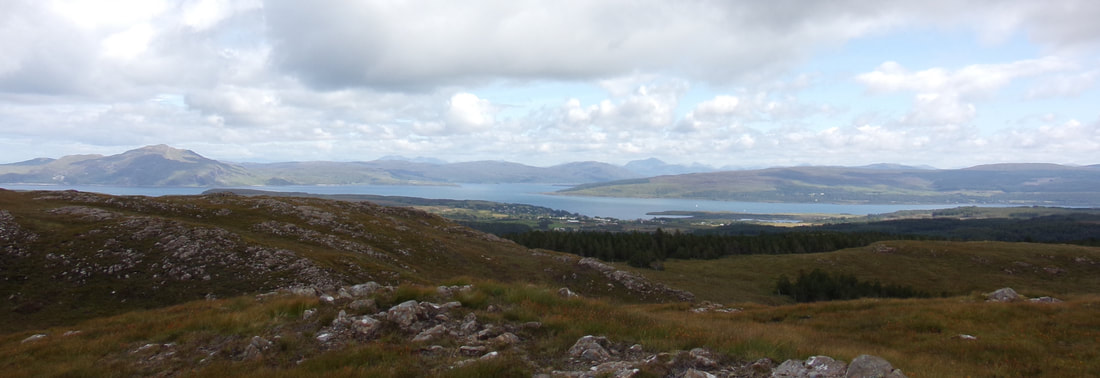
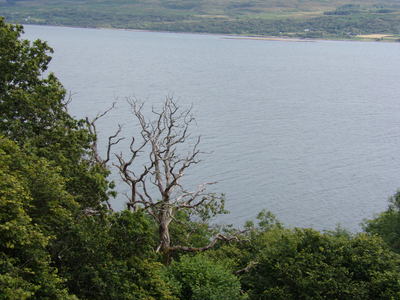
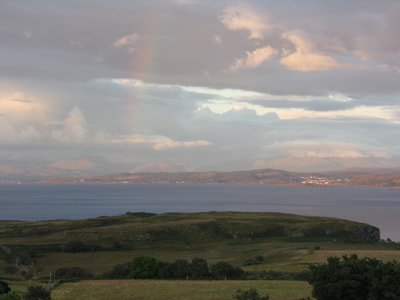
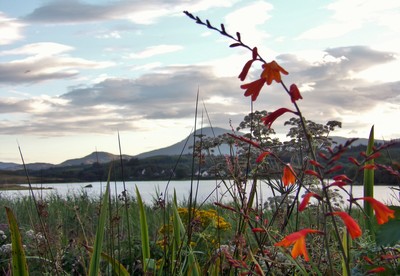
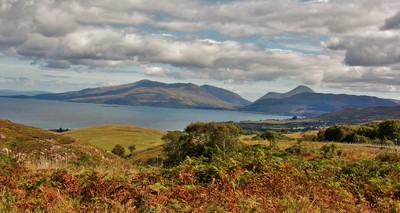
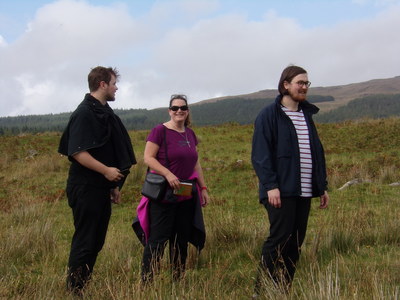
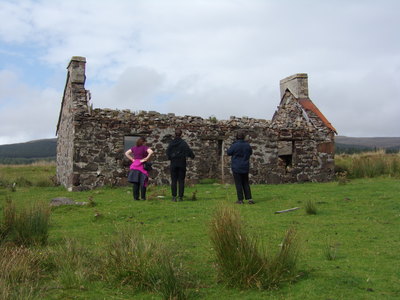
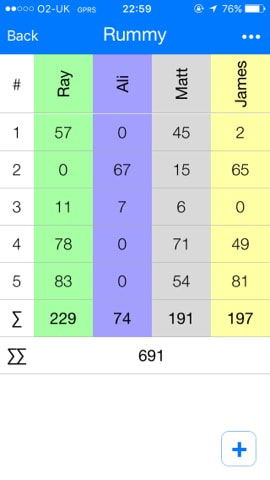
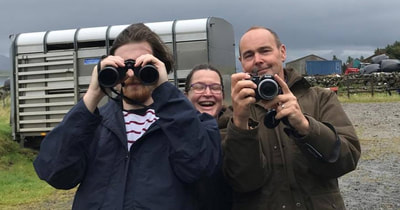
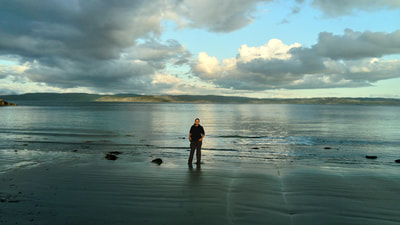
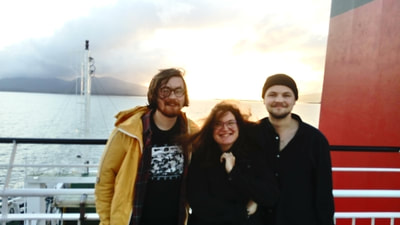
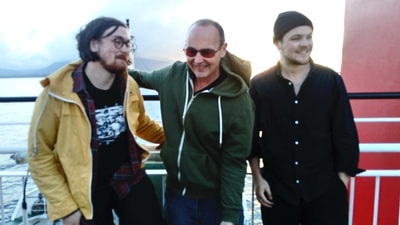
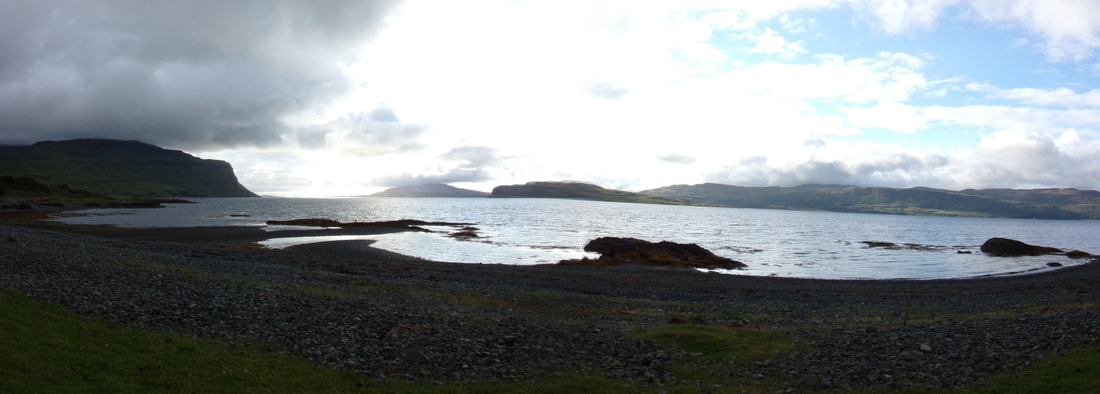


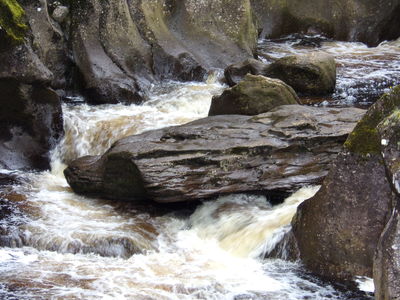
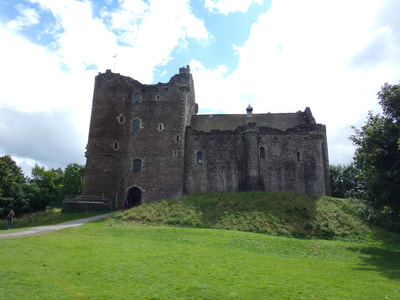
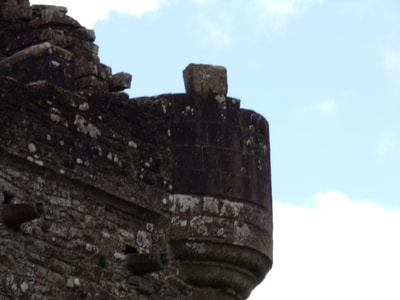
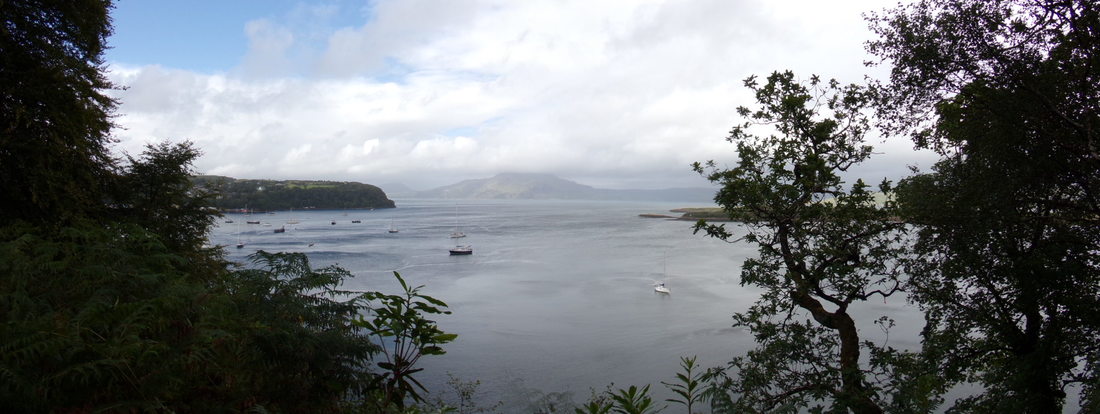
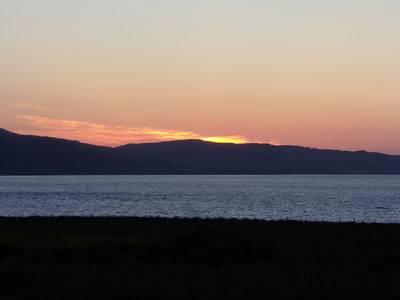
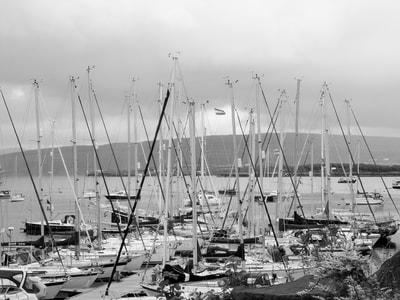
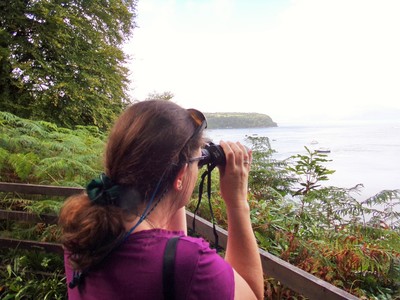
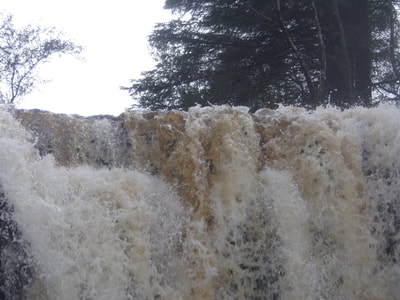
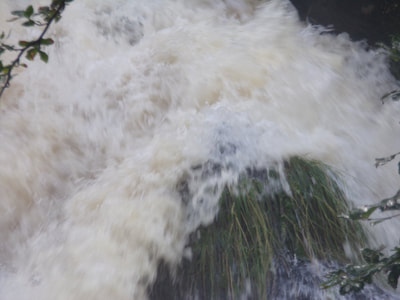
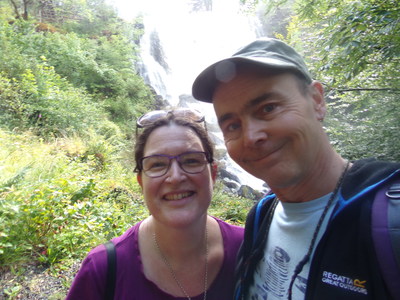
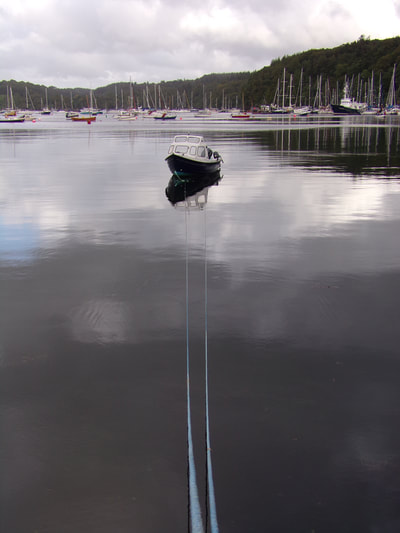
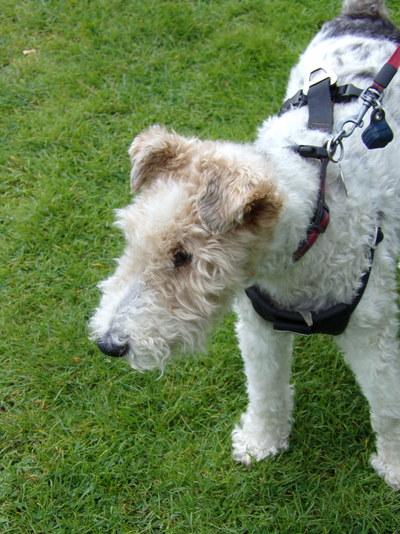


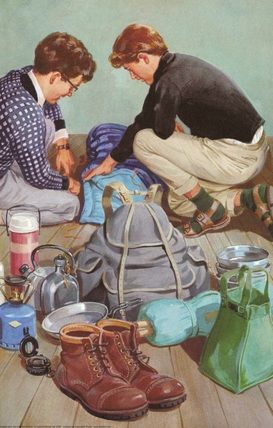
 RSS Feed
RSS Feed
